II. BACKGROUND 배경
1. The Roles of the Board of Audit and Inspection 감사위원회의 역할
2. The Operation of the National Basic Living Security Scheme 국민기초생활보장계획 운영
III. EVALUATION METHODS 평가 방법
IV. EVALUATON RESULTS 평가결과
1. Ineffective Critera of Beneficiary Selection 수익자 선택의 실효성 없는 기준
A. inflexible criteria for selecting beneficiaries of NBLSS 국민기초생활보장법의의 수익자를 선택하는 확고한 기준
B. Complicated critera for selecting beneficiaries of the elderly pension system 국민연금 수령인 선택을 위한 복잡한 기준
2. Inefficient Delivery System of Social Welfare Services 사회복지 서비스의 비효율적인 전달 시스템
A. Inappropriate management of social welfare officials 사회복지 공무원의 부적당한 운영
B. Inadequate operation of social welfare administration 사회복지기관의 부적당한 운영
V. RECOMMENDATIONS AND CONCLUSION 권장 및 결말
감사원 12명의 직원 그룹은 중앙정부와 32개 시/군/구 지방정부에 2002년 8월 29일부터 10월 4일까지 현장방문과 자유로운 면담 형식을 통해 보건복지부를 평가해줄 것을 지시하였다.
생산적인 복지의 개념은 매우 가난한 개인을 위해 최저생활 수준을 지키기 위함으로 정의되며 그들의 자립을 돕고, 개개인이 필요로 하는 것을 원조해준다. 이 개념은 미국의 클린턴 행정부 동안에 사회복지 방침에서 비롯되었다.
II. BACKGROUND
II. 배경
1. The Roles of the Board of Audit and Inspection
1. 감사위원회의 역할
BAI, the Supreme Audit Institution of the Republic of Korea, is established under the President of the Republic, but it is independent in performing its duties. Provisions of the Constitution and the BAI Act mention three major responsibilities of BAI: (i) BAI verifies the accounts of revenues and expenditures of the central government; (ii) BAI carries out strict financial audits of the accounts of the central government, provincial and local governments, government-invested corporations, and other entities of public nature; and (iii) BAI inspects the performance of operations and duties of government officials.

- 오늘 본 자료가 없습니다.
- 성폭력으로 인한 피해 사례 5가지, 발생원인, 대처방안
- 사회과학 성폭력의 사례들과 발생 원인 대처 방법
- 대인관계의심리학) 사람들은 다양한 대인관계를 맺고 살아갑니다. 사람들이 대인관계를 맺는 과정에서는 자신만의 중요한 심리적 요인들의 영향을 받게 됩니다. 자신의 대인관계를 돌아보면서 내가 대인관계를 맺는 과정에서 가장 중요하게 영향을 받는다고 생각되는 요소나 요인들은 무엇이라고 생각되며 그러한 요소들이 대인관계심리학의 이론으로 분석하면 어떤 의미와 작용을 하
- 다문화가족 자녀들의 성장에 따라 발생할 수 있는 문제점과 해결방안에 대해
- 청소년복지론에 관한 여러 이론적인 접근들 중에 임파워먼트 접근 방법의 개념과 그 특성, 그리고 실천 과정에 대한 내용 및 중요성에 대해 설명하시오
해당 정보 및 게시물의 저작권과 기타 법적 책임은 자료 등록자에게 있습니다. 위 정보 및 게시물 내용의 불법적 이용,무단 전재·배포는 금지되어 있습니다. 저작권침해, 명예훼손 등 분쟁요소 발견 시 고객센터에 신고해 주시기 바랍니다.



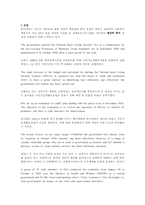
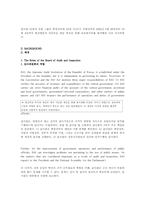
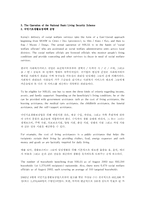
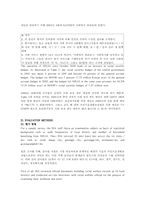
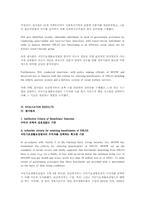
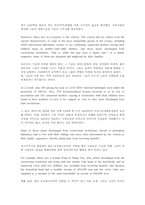
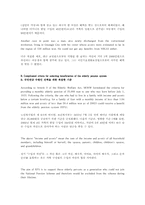
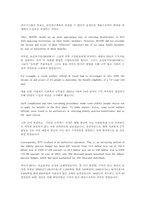
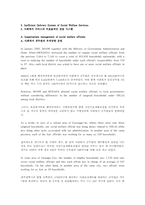
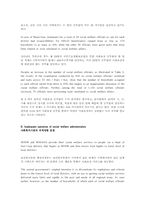
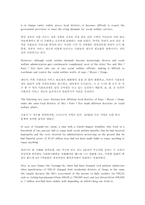
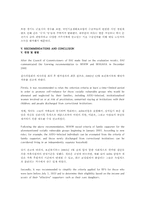
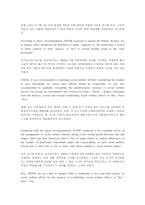
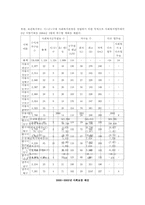
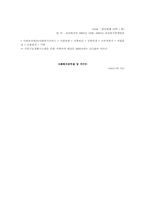
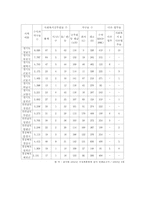
 분야
분야

